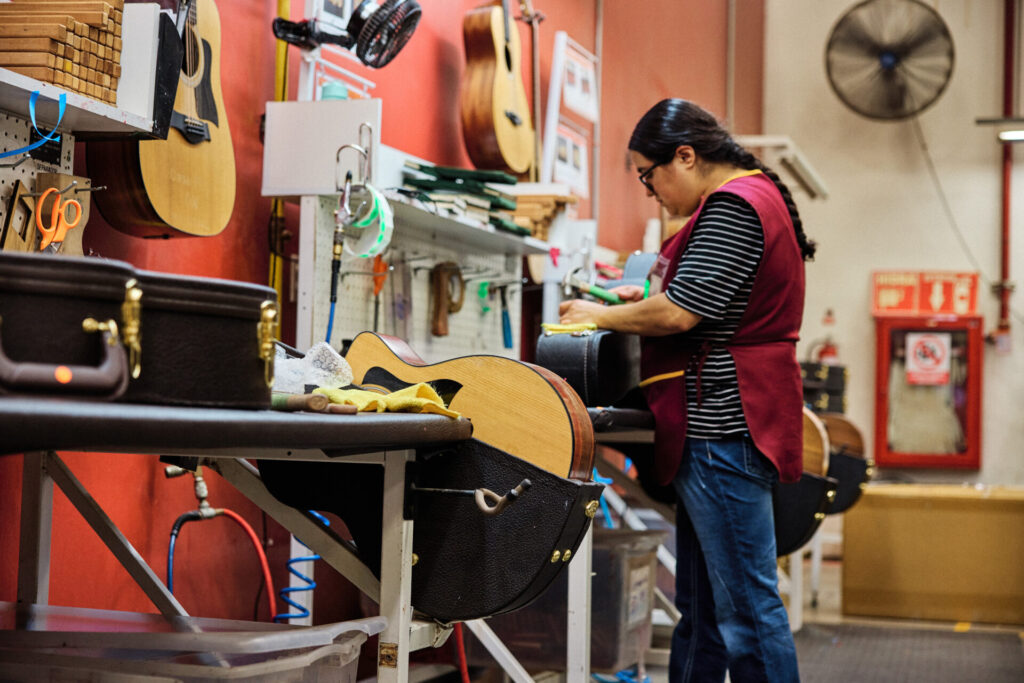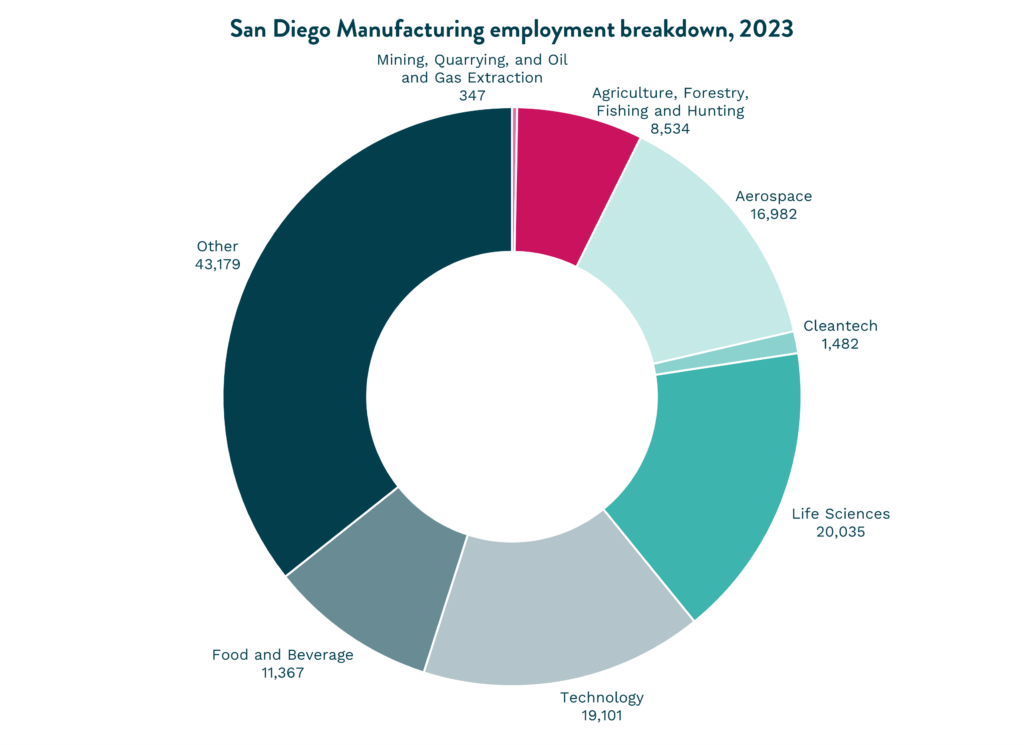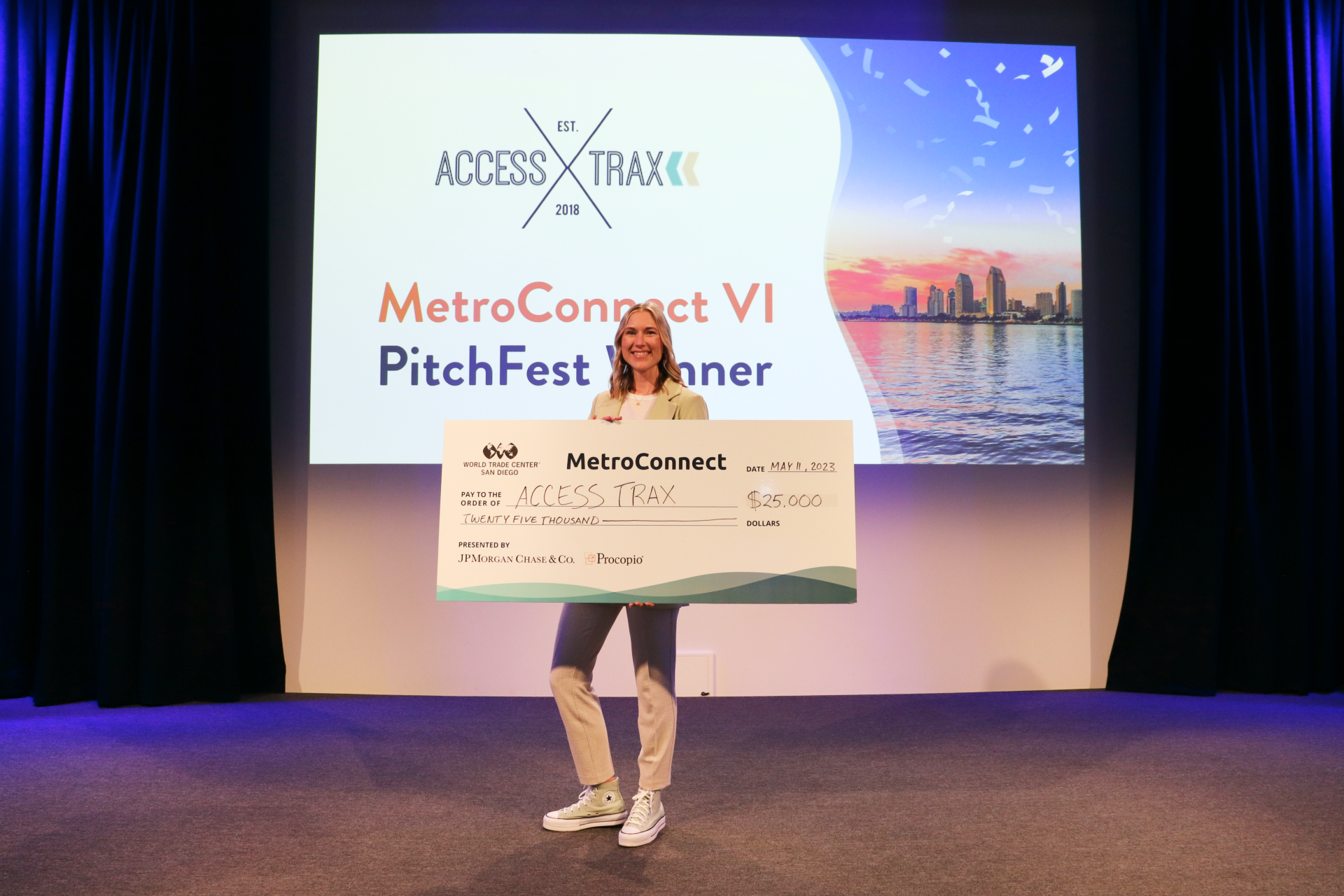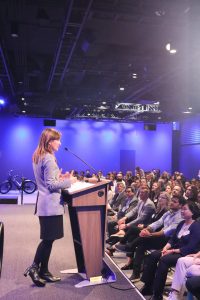This week, San Diego Regional EDC released “Manufacturing in San Diego: Local Impact, Global Reach,” which quantifies the economic impact of the region’s Manufacturing sector and explores the firms, innovation clusters, and talent building and creating the goods and technologies of the future.
While federal priorities shift to reduce dependence on foreign supply chains, prioritizing the resilience and competitiveness of San Diego’s Manufacturing sector is key. In fact, over the last five years local manufacturing firm growth has outpaced that of California and the U.S. at large. The Manufacturing sector not only creates jobs and fosters innovation across key industries in our binational region, but it ensures a stable supply of essential goods and technologies.
“As is always our mission, this report aims to provide actionable insight for regional decision makers with data and guidance needed to preserve and enhance San Diego’s competitiveness in the global economy. Manufacturing is core to San Diego’s innovation identity, offering onramps to quality jobs, and will need coordinated support to sustain growth,” said Eduardo Velasquez, Sr. Director of Research & Economic Development at San Diego Regional EDC, the report’s author.
Released as part of National Manufacturing Month, the interactive web report includes a deep dive on the $47 billion Manufacturing sector, and includes company profiles, a metro-by-metro comparison, and a set of recommendations for better supporting manufacturers in a costly and highly regulated environment.
KEY report FINDINGS
- San Diego’s Manufacturing sector is a significant part of the regional economy. There are 121,027 jobs supported by 4,429 establishments tied to the Manufacturing sector. This means that manufacturing employment accounts for nearly one in 10 private sector jobs across the region. Altogether, this amounts to a $47 billion regional economic impact annually.
- Manufacturing jobs are high-paying and increasingly accessible. Average annual wages are more than $103,000, which is 31 percent higher than the region’s average. The proportion of manufacturing jobs not requiring higher education continues to rise, opening opportunities to a wider range of candidates.
- Growth in the sector is driven by small businesses. More than one-third of the manufacturing workforce is employed by a small business, with fewer than 100 employees. Nearly nine in 10 manufacturers employ fewer than 50 employees.
- Manufacturing is tied to innovation. San Diego manufacturing encompasses industry verticals from Consumer Goods and Craft Beer to Life Sciences, Technology, and Aerospace. Innovation-related industries make up 46 percent of all manufacturing employment in the region.
- High cost of living and operational challenges hinder the sector’s growth. Success stems from companies finding unique pathways to grow and expand. However, a high cost of living, limited space, and higher operational costs in San Diego pose challenges for attracting and retaining manufacturers and their workers.

Manufacturing in San Diego is made up of world-class brands and consumer goods like Taylor Guitars, Dr. Bronner’s soaps, and Stone Brewing’s IPAs. Yet San Diego’s Manufacturing sector also has a strong tie to the region’s innovation ecosystem—producing everything from satellite navigation equipment to genome sequencers. In fact, San Diego’s innovation manufacturing employment concentration is more than double the national average.
“San Diego brings something special beyond biotech innovation—it’s the collaborative spirit and vibrant energy here that truly enhance what we create,” said David Arida, COO at Biolinq, a San Diego startup focused on developing biowearable sensor devices.
However, the region’s high cost of living, expensive and hard-to-come-by real estate, and higher operational costs pose challenges for attracting and retaining talent and manufactures alike. Even more, San Diego ranks low in ease of doing business compared to competitor regions, which can impact company decisions on where to locate or expand operations.
“As EDC’s report demonstrates, it is critical that our region commits to cultivating talent and catalyzing innovation, as well as investing in critical infrastructure and easy-to-navigate policy frameworks to better support local manufacturers. In Carlsbad, we are dedicated to strengthening our manufacturing community by fostering collaboration and ensuring businesses have the resources needed to succeed. From streamlining processes to providing access to new opportunities, we are committed to making Carlsbad a hub for innovation and sustainable growth in manufacturing,” said City of Carlsbad Mayor Keith Blackburn.
The report was sponsored by the City of Carlsbad, CMTC, San Diego County Water Authority, and Walmart, and was unveiled October 30 at an industry event together with Carlsbad Mayor Keith Blackburn and San Diego City Councilmember Raul Campillo.
LEARN MORE ABOUT MANUFACTURING IN SAN DIEGO
Plus, explore our Spotlight on Manufacturing series
- Manufacturing in San Diego: More vital than you think
- Building a bright future: The faces of San Diego manufacturing
- Harnessing the power of cross-border manufacturing in San Diego
About EDC
San Diego Regional Economic Development Corporation (EDC) is an independently-funded economic development organization that mobilizes business, government, and civic leaders around an inclusive economic development strategy in order to connect data to decision making, maximize regional prosperity, enhance global competitiveness, and position San Diego effectively for investment and talent.










 Founded in El Cajon nearly 50 years ago,
Founded in El Cajon nearly 50 years ago,  Garry Ridge is well known for his 35 years at the helm of
Garry Ridge is well known for his 35 years at the helm of 

